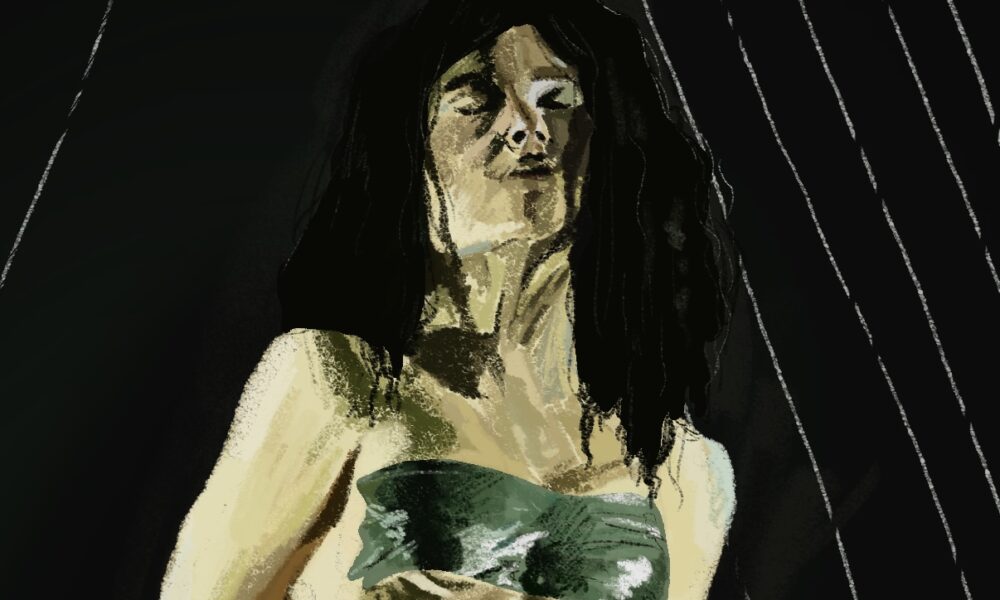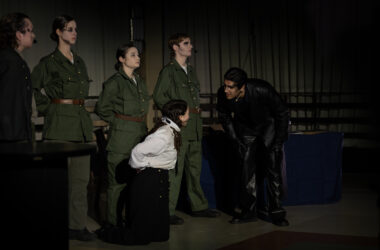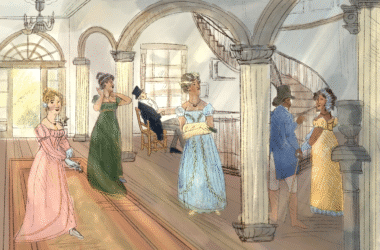On Pure Heroine’s twelve-year anniversary, Lorde was reborn a Virgin at Montreal’s Bell Centre. After a four-year hiatus since Solar Power, she arrived incomplete and half-made, perpetually becoming—an invitation to get ready with her—for one tender night of confessional pop.
Discussing her fourth album, Virgin, Lorde told Apple Music: “Everything was pure possibility. That first sound feels like it’s coming from a very guttural place in my body.” She continued, “My sister said ‘it sounds like it’s coming from your womb,’” hinting at the intimate inspiration behind the Ultrasound Tour‘s title.
“Hammer” opened the electric performance under a flickering ray of light that gradually expanded, carving the stage into Lorde’s enveloping spotlight. Drawing from her 2023 experience coming off birth control, the song explores the impossible task of repeatedly discovering beauty in something as mundanely familiar as one’s own body—a process familiar to artists who reinvent themselves each album cycle.
Since then, she has spoken openly about her struggle with premenstrual dysphoric disorder. Displaying her intrauterine device (IUD) on the x-ray album cover, she described it as “a photo of yourself that you don’t love but captures something true about you.” The concert merchandise reinforces a promise of vulnerability, including stripped-down, clear CDs. While visually striking, some failed on laser-based players, underscoring the tension between euphoric transparency and artistic performance.
In a Rolling Stone interview, Lorde described ovulating for the first time in a decade as a profound moment of clarity where she recognized a disconnect between herself and conventional “regulated femininity.” It felt like a permission to inhabit her body fully. In “Supercut,” Lorde enacted this revelation, running endlessly on a treadmill, only to struggle and ultimately surrender; concession is a universal language, and her fragility is transformed into power.
“I felt incredibly alone, always,” Lorde said in concert, “I sang from that place over and over and this year of my life is really making it hit home for me.”
This struggle is reflected through her accompanying performers. “Favourite Daughter” became a seamless pas de deux between Lorde and technology. Close-ups of Lorde interwove with sound booth and backstage footage, breaking the fourth wall to reveal the meta-machinery at the heart of the concert. In “Broken Glass,” two contemporary dancers revisited the eating disorder Lorde confronted during Solar Power—one convulsed on the floor as the other took bites of apples. Years earlier, she had tried to make herself smaller; now she allows herself to take up space, intertwining the physical act of liberation into the expansion of selfhood and gender.
Performed live with her chest bound in duct tape, Lorde’s “Man of the Year” exemplifies Virgin’s thesis of self-discovery and transformation as she questions what it means to be a woman—or not. In an interview with Rolling Stone, she said, “I’m a woman except for the days when I’m a man.”
Lorde has long toyed with gender fluidity, beginning with her stage name: Chosen at sixteen, ‘Lorde’ feminizes the masculine ‘lord’—a playful commentary on the role of gender in aristocratic power.
At the emotional precipice, Lorde—visibly moved—addressed the crowd during “Liability”’s musical prelude: “We’re the freaks, you know. It’s always surprising to me that we get the big room on a Saturday night. [….] All these people have something in common, which is so beautiful and increasingly rare. To have an hour and forty-five minutes worth of anything in common with this many people, it’s beautiful.”
In “David,” Virgin’s outro, Lorde wandered through the crowd in a radiant mirrored suit. Echoing, “Am I ever going to love again?” she refracted not just the light but the audience’s emotional gravity. On the stage screen, footage of her past self from the concert’s opening flashes in superimposition, a haunting overlay of the memory of who she was and who she has become.
Dissolving back into the crowd at the end of the night, the Ultrasound Tour makes clear that Virgin isn’t a return to naive innocence—it’s an act of surrender, a willingness to become something unrecognizable.









